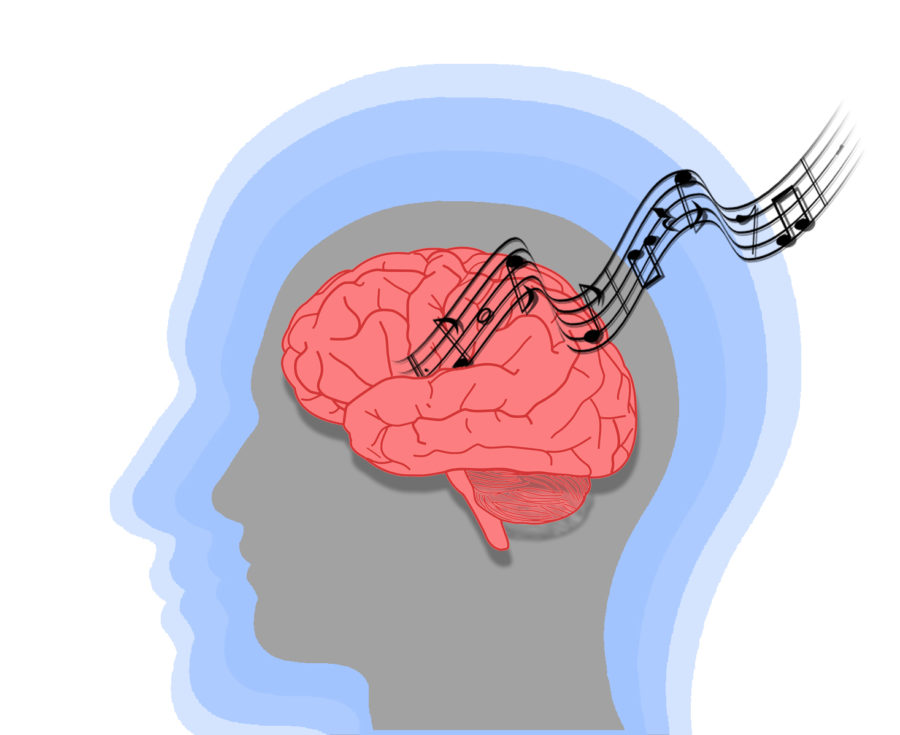Music Can Help Students learn
March 16, 2018
On a good day, a pop song keeps the mood going. During a workout people use energetic music to get pumped. When a student is studying they can throw on some classical music to focus. When a group of friends are in a car they’ll all sing along to the same rap song they memorized in the seventh grade, and when one of those same kids goes through their first breakup, their best friend will be right there to play some sad sappy acoustic music to ease the pain. Surprisingly, all of the music used during these moments really can help.
As access to music has increased over the past decade thanks to advances in technology, its variety of uses has grown with it. From concentration to energy, music can improve many parts of our body and mind in a number of ways.
The classical genre is a godsend in the world of helpful music. A study was done in France showing just how much this music can improve students likelihood to succeed. Classical music was played in the background of a one-hour lecture to half of a class of college students. Afterwards, the same lecture was given without music to the other half. When the students took the same assessment afterwards the results showed that those who listened to the music scored significantly higher than those who did not. The music is thought to heighten students emotional states, which in turn makes them more receptive to information.
However, in some circumstances classical music won’t be much of a motivator. Imagine Highland’s Black Hole during a rivalry football game. The players are running out onto the field while the student section is cheering them on, then all of a sudden Beethoven’s Für Elise comes over the sound system. While that might be a great song for studying, it’s really not going to set the right mood for a football game. Different types of music influence different emotions.
“Music expresses something that words can’t, and it helps get feelings across. It’s also a good stress outlet for me.” Claire Wood, an alto in the Highland Madrigals and a talented musician, said.
A recent study done by the Duke Cancer Institute showed that classical music can even reduce stress and lessen anxiety. The researchers monitored patients undergoing different amounts of stress and exposed a select few to classical concertos by Bach. After the various situations, the patients who listened to the music showed a major decrease in blood pressure and also reported less pain. The same researchers said that these findings can likely be applied to other stressors, such as tests and certain school work.
Now not everyone can sit down and happily listen to Mozart to keep themselves focused, luckily there are many other things different genres can do. During exercise and activities that elevate your heart rate, songs that range from 120 to 140 beats per minute help to improve performance.
In a Vivo Laboratory study, music was shown to increase cyclists persistence and speed. Those who listened to music in the range of the above beats per minute kept a faster pace and also were able to push themselves longer than those not listening to anything. The researchers believe two things could be to blame for this. One reason is that the music can be used as a distraction to the brain and can allow people to stay active for longer as a result of that. Another could be that when listening to certain kinds of music, the brain releases chemicals that make people physically feel better and have more energy to continue.
One of those chemicals the brain releases is dopamine. Dopamine is strongly associated with a portion of the brain called the ventral tegmental area, nicknamed the “reward center” because of its function of making a person feel good after doing various activities. One of those activities is listening to music. When a song is played that someone enjoys, a certain amount of dopamine is released and gives you a good feeling. Songs like these can boost a persons mood and make them happy even after the song is over. The songs that boost mood the most vary from person to person. A rock song can affect one person’s mood much greater than a pop song could, and vice versa. It all depends on personal preference.
Music can be used to help a person lift their spirits, stay focused, feel motivated, continue to be relaxed, obtain energy, along with a multitude of other things. And with how easily accessible it is to all of us, it is a tool everyone can and should be using.




























